

Emma Grace with the Tino Rangatiratanga flag neatly furled upon her desk.
Photo/Supplied
NZ's Youth Parliament erupts as Māori, Pacific MPs unite against race-based scholarships
The clash of perspectives underscores the urgency to address identity and equity in Aotearoa as they ensure their voices are heard.


Losing her vision at 29, woman found a crisis Pacific communities can’t afford to ignore

Kings bring OFC Pro League home as storms hit round three fixtures

Fears that new police powers will push Pacific youth further into harm

Pacific calls for action on climate change and illegal fishing at major ocean naval forum

Losing her vision at 29, woman found a crisis Pacific communities can’t afford to ignore

Kings bring OFC Pro League home as storms hit round three fixtures

Fears that new police powers will push Pacific youth further into harm
In a recent fiery session of Youth Parliament that echoed the tensions of the real political arena, the House was shaken by a speech calling for an end to race-based scholarships.
This speech triggered visible protests, cultural assurances, and impassioned responses from Māori and Pasifika youth MPs.
The member who spoke on putting an end to race-based scholarships began with a stark statement: “We are fed up. We’re sick and tired of race-based division and treatment, of Māori scholarships, of Pacifica scholarships.”
Immediately, a number of Māori and Pasefika Youth MPs responded by placing cultural taonga, patu, Ei Katu’s, and other symbols of heritage on their desks in silent protest.
One Youth MP unfurled a Tino Rangatiratanga flag across their desk. From the public gallery above, a Tino Rangatiratanga flag was also draped in solidarity, a symbolic reminder of whose whenua Parliament stands upon.
The first Point of Order was raised, citing concerns of discriminatory and offensive language, but the Speaker ruled that although controversial, the topic was not out of order and had been raised before in the adult chamber.
The Speaker stated he would “listen carefully” as the speech continued.
As the member went on to declare, “They are funded by the taxpayers, they simply have to go,” referring to race-based scholarships, another Labour-affiliated Youth MP responded with a pointed interjection.
They referenced the Ngarimu VC and 28th Māori Battalion Memorial Scholarship Fund, which honours Māori soldiers and supports Māori educational advancement, stating: “A member’s speech must not bring harm to the dignity of this Parliament.”
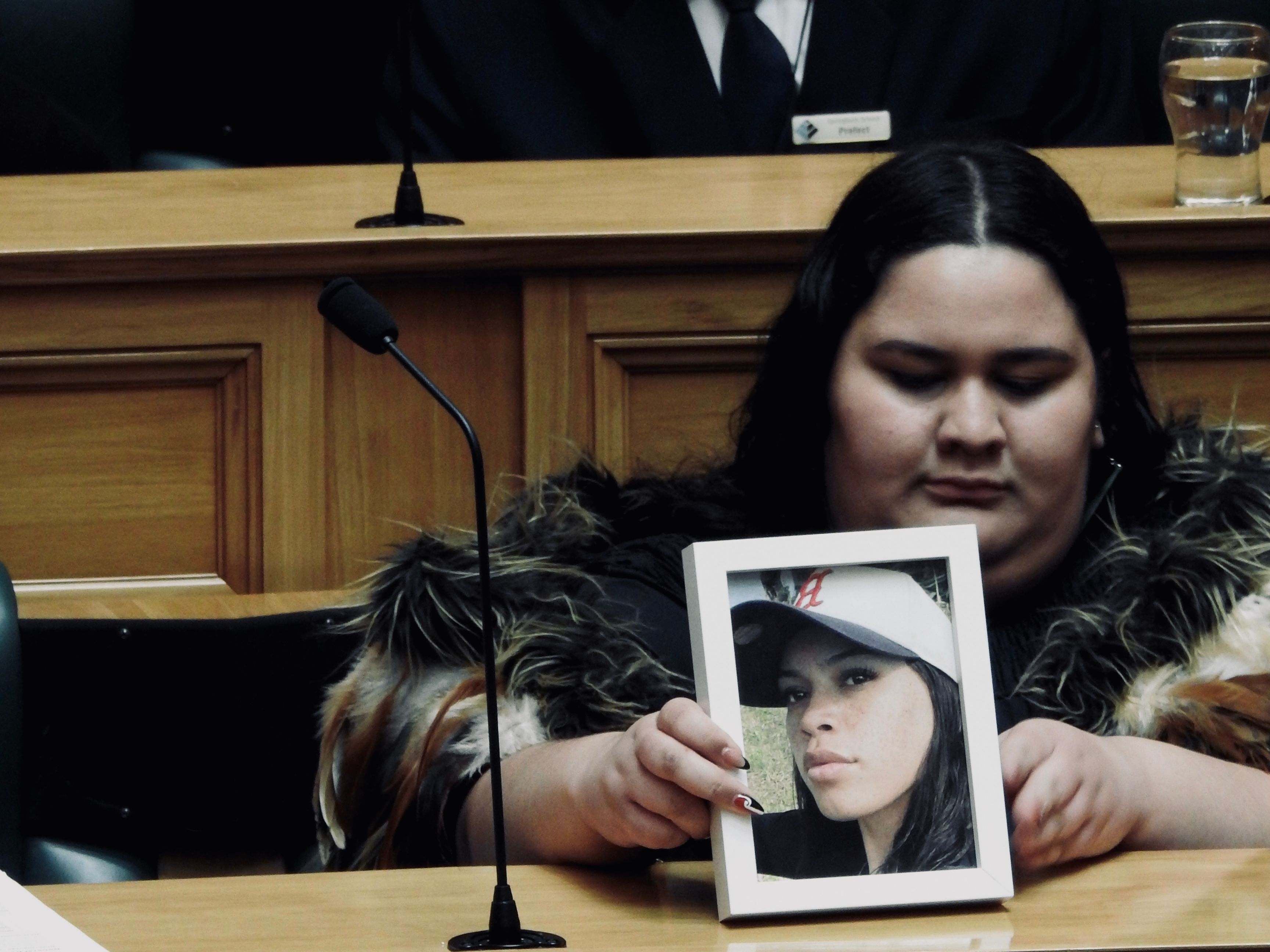
The late Māori MP Takutai Tarsh Kemp's Youth MP, Renee Paranagi. Photo/Supplied
The Speaker acknowledged the significance of the objection and asked the member to move on from that aspect of the speech “to help maintain the order of the House.”
The member argued that grouping people by ancestry and offering them targeted solutions was, in his words, “borderline insulting.”
He added: “We need to stop this lazy and racist approach… It’s teaching the next generation to judge people based on their race and not who they are.”
He concluded with a stark call to action: “I am calling for an immediate stop to all race-based policies in education and public service. Because. Time. Is. Running. Out.”
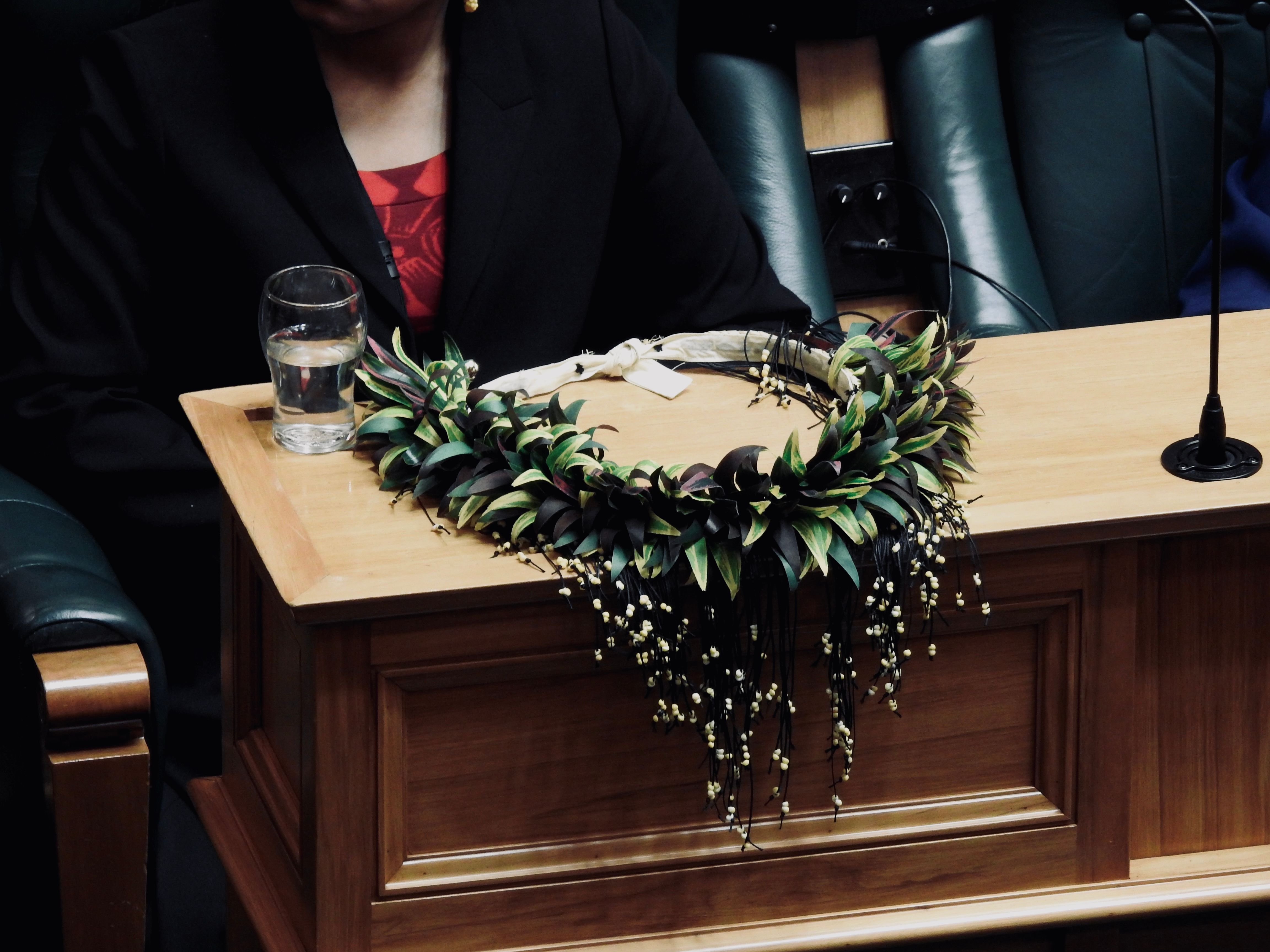
Kenahemana Hekau's Niuean lei is placed respectfully upon her desk. Photo/Supplied
Outside the chamber, the speech was described by several rangatahi as “a deliberate attack on Māori and Pasefika communities”.
One Youth MP stated in an interview I had with them: “Everything Māori and Pasefika have now, they worked and fought hard for. And we will continue to fight for what is ours.”
Another said: “The draping of the Tino Ramgatiratanga flag from the gallery and the taonga placed around the desks served as a reminder to everyone whose land we’re standing on.”
These symbolic actions, non-verbal but profoundly political, marked one of the most visually striking moments of the Youth Parliament session.
Watch AJ Muliaga's full interview below.
The member's speech also closely mirrored recent developments in adult Parliament.
ACT Party leader David Seymour has introduced a Member’s Bill seeking to outlaw government-funded services or opportunities that prioritise ethnicity, including university scholarships.
The Bill doesn’t stop private providers from offering scholarships. It stops the Government from using race to decide who gets funding opportunities.
Seymour argues that such policies are “divisive” and fail to address the root causes of inequity. The member’s speech in Youth Parliament echoed these exact sentiments.
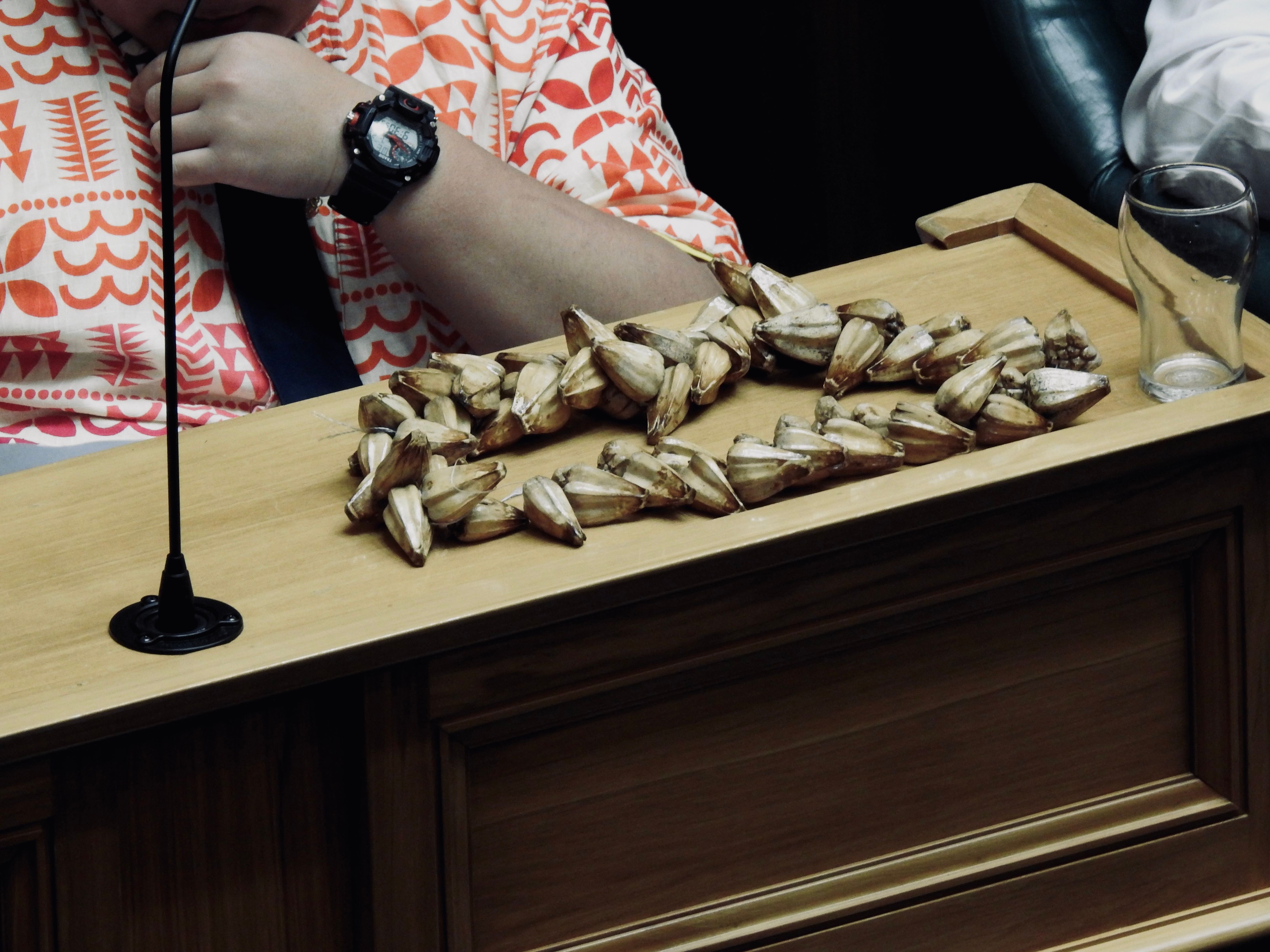
Ej Coffin's ʻUla Fala is displayed on his table. Photo/Supplied
Yet, critics argue that race-conscious scholarships are not about division, but about redress - a means of acknowledging historical disadvantage and promoting equity.
This debate isn’t new, but what made the Youth Parliament session significant was the courage of young leaders to stand in it. From both sides, the speeches were raw, articulate, and deeply felt.
This moment in Youth Parliament highlights the growing awareness and urgency with which the next generation is engaging in Aotearoa’s most sensitive political debates.
It showed how policy debates are no longer just about legislation; they are about identity, legacy, and the power of who gets to belong.
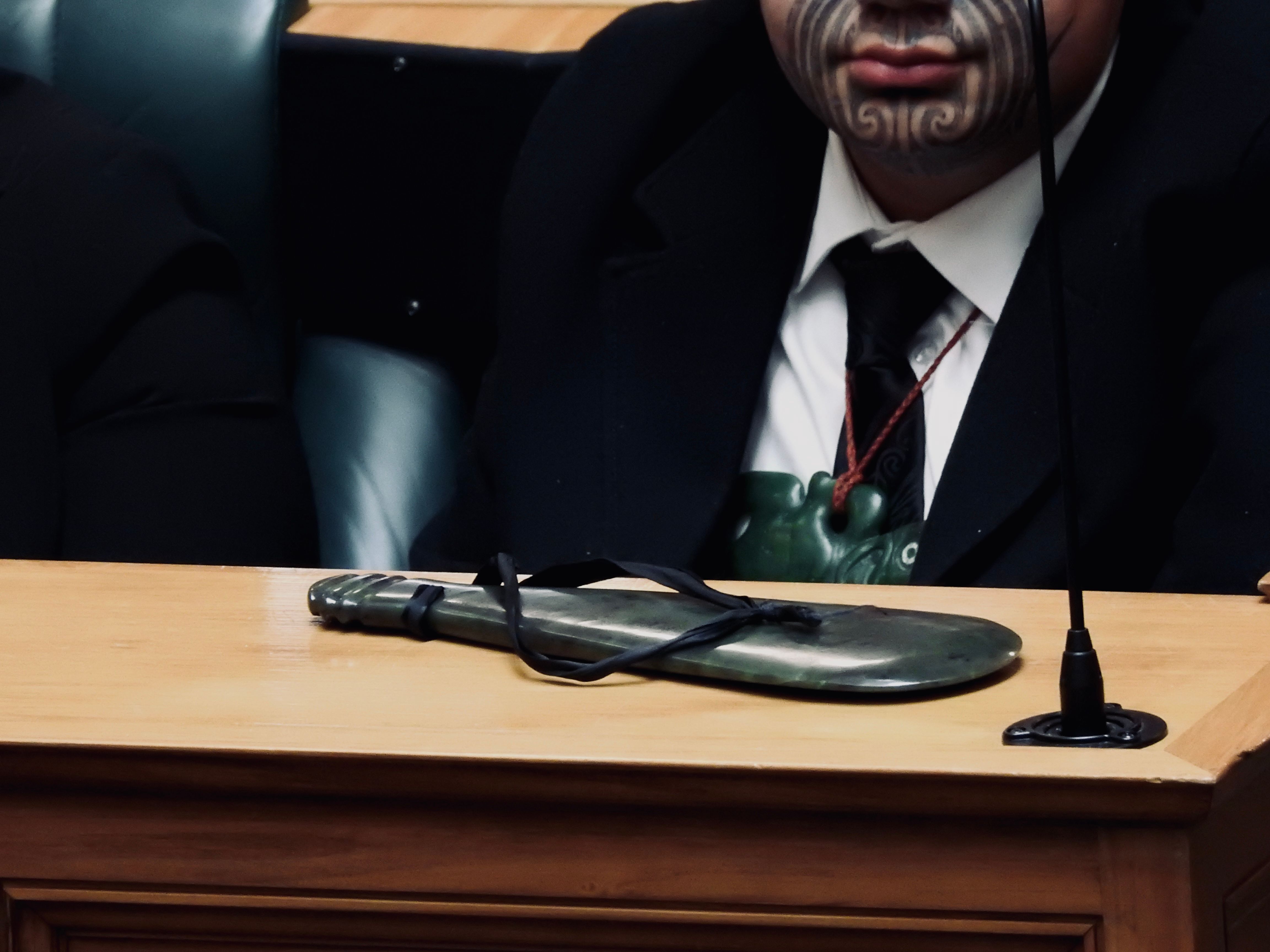
Tērangi Tukiwaho's patu is on his desk. Photo/Supplied
And while some may see the draping of flags and the placing of patu on desks as defiant acts, many rangatahi saw them for what they truly were: a peaceful but firm reminder that Māori and Pasefika voices will not be sidelined.
In the words of one youth parliament member: “We weren’t just speaking for ourselves. We were speaking for our people. And we’re not going anywhere.”
AJ Muliaga is a prefect at Rutherford College in West Auckland and has a strong interest in journalism and politics. He was the only Pacific member in the Youth Press Gallery during the 2025 Youth Parliament. The views expressed here are his own and do not represent PMN.
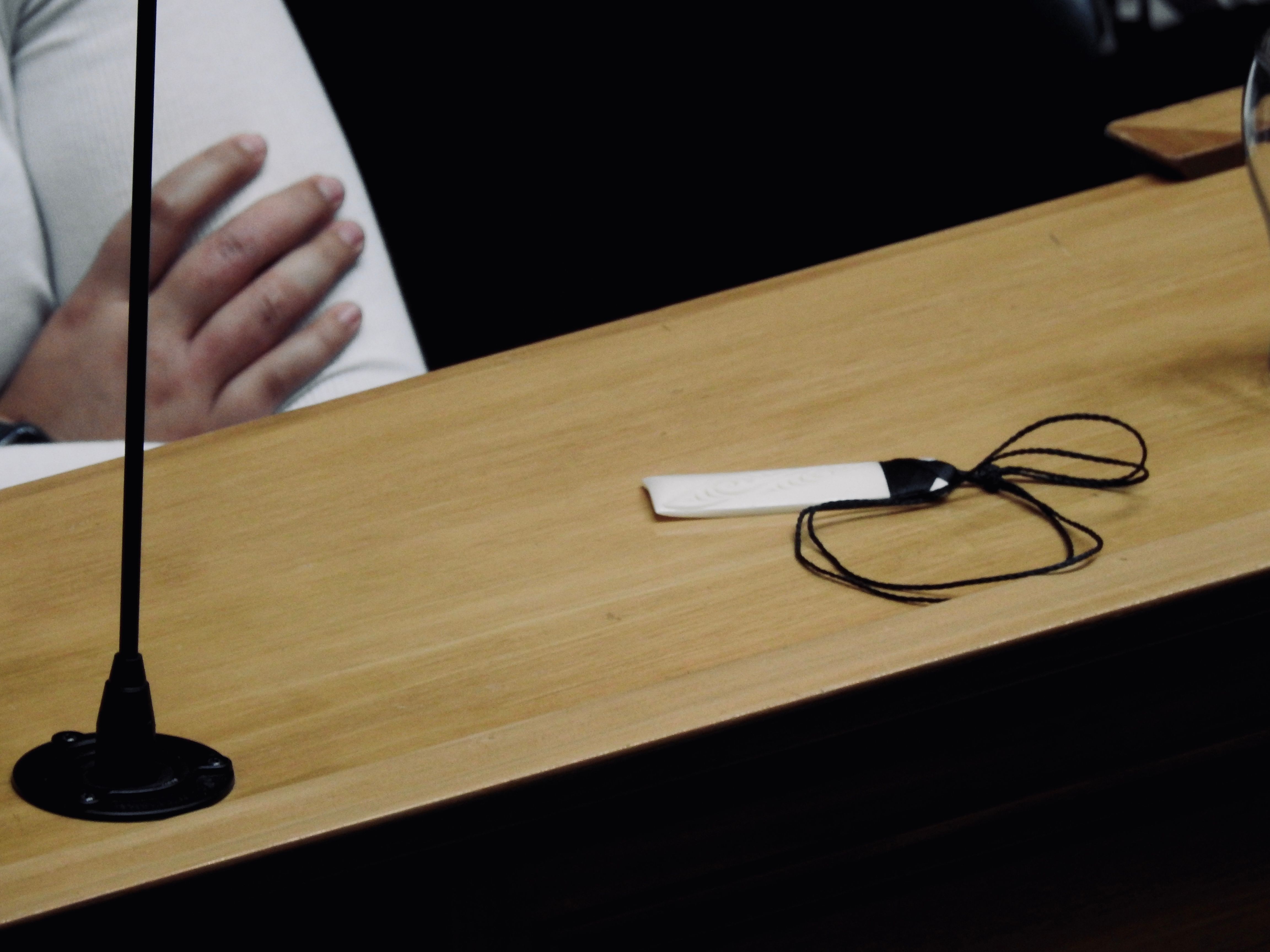
Faith Heke’s taonga. Photo/Supplied